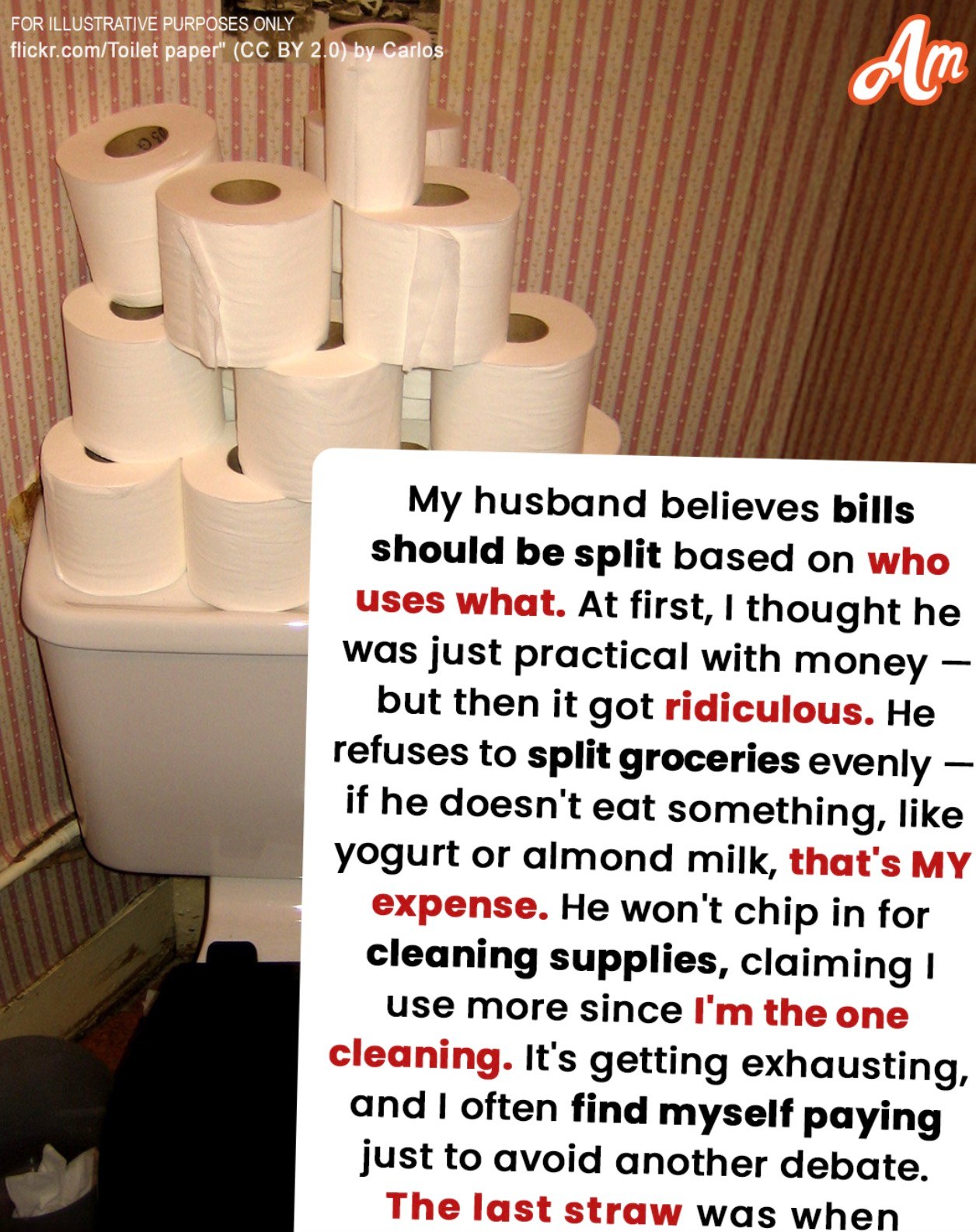I never thought money would be the thing that cracked our marriage wide open. Not big-money issues like buying a house or retirement plans, but petty disputes over groceries, internet usage, and laundry detergent. I used to believe that when couples fought about money, it was over life-changing decisions.

But in my marriage to Thomas, it turned into a constant accounting game where every expense, no matter how small, had to be split based on usage. It started off reasonably enough. When we got married, we agreed to keep our finances semi-separate—individual accounts plus a joint one for shared bills like the mortgage and utilities. At first, it worked. But gradually, Thomas’s definition of fairness turned obsessive. If I took a longer shower, he wanted me to pay more of the gas bill. If I bought almond milk and he didn’t drink it, that was my sole expense—even though we split the cost of regular milk. Everything became a line item to be tracked, down to the brand of yogurt I preferred. He’d even charge me more for the Netflix subscription because, apparently, I watched more shows.
Then came the moment that changed everything. I was working from home one morning, preparing for a career-defining video call with a major potential client. Minutes before my presentation, Thomas—already at his office job—sent me a Venmo request for $20. The reason? “Wi-Fi usage fee.” According to him, since I was the one using the internet while he wasn’t home, I owed him for it.
That tiny request was the straw that broke me. It wasn’t about the money—it never was. It was the fact that my own husband was charging me to use a shared utility in our home, just minutes before something incredibly important to my career. After completing the presentation—which went well—I sat staring at that Venmo request, numb. I couldn’t even bring myself to celebrate my success. That night, while he was at the gym, I started tallying every unspoken contribution I had made to our life together.
I opened a spreadsheet and listed every load of laundry, every dish washed, every grocery trip, every home-cooked meal. I calculated the market rate for cleaning, cooking, personal shopping, and admin work. The total came to $20,254. I formatted the data into a professional invoice with hours worked, tasks listed, and a due date for payment. I printed it, walked over to his desk, and left it there. Then I packed a bag and arranged to stay with my sister. When he found the invoice the next morning, he was furious and confused. He stormed into the kitchen waving the paper, demanding to know what it was. I calmly told him, “It’s a bill for services rendered. I thought you’d appreciate an itemized breakdown since you’re so concerned about fair payment based on usage.” He shouted that it was absurd, that things like cleaning or cooking were part of what I was “supposed to do” as his wife. I pushed back. “Am I supposed to clean alone just because I do it more? Are you supposed to bill me for pasta I cook for both of us? And Wi-Fi in our home during work hours—does that deserve a $20 invoice?” He couldn’t see it. He argued I chose to do those things, that he never asked me to. But that’s exactly the problem—he never saw us as a team, only as individuals who happened to share a roof. I told him I hadn’t even included emotional labor in the total: remembering birthdays, supporting him through work stress, organizing holidays, nurturing our social life. If I had, the bill would’ve been even higher. I told him I was leaving and had spoken with a lawyer. He panicked, said we could talk, swore the Wi-Fi charge was going too far. But it was too late. That moment had stripped away every illusion I had about our partnership. I wanted a life with shared goals, mutual respect, and generosity—not a daily ledger of debts and reimbursements. I walked out the door, and as I drove away, I saw him in the rearview mirror standing in our doorway, holding the invoice and looking completely lost. A part of me ached, but a stronger part knew I was finally free.





